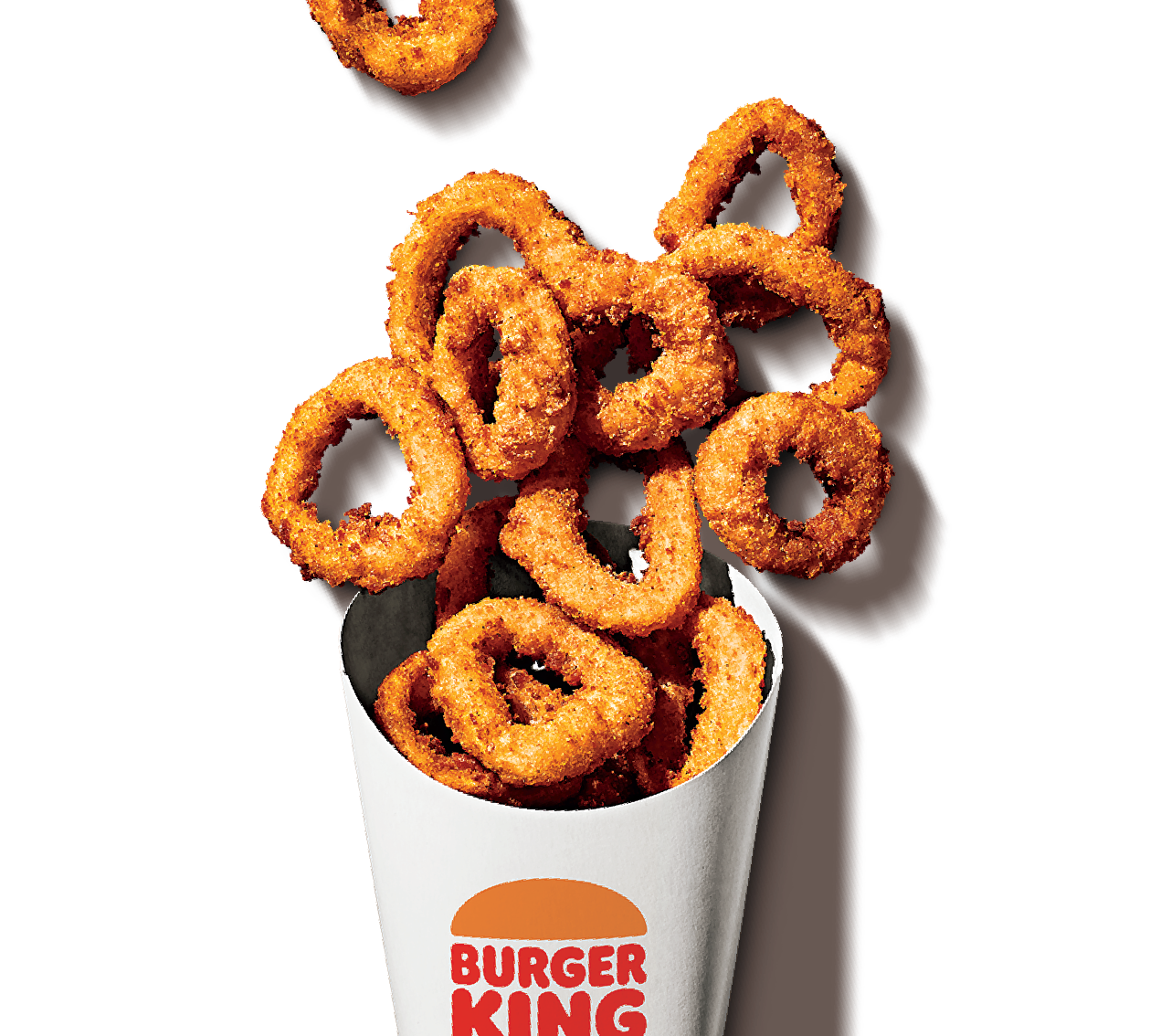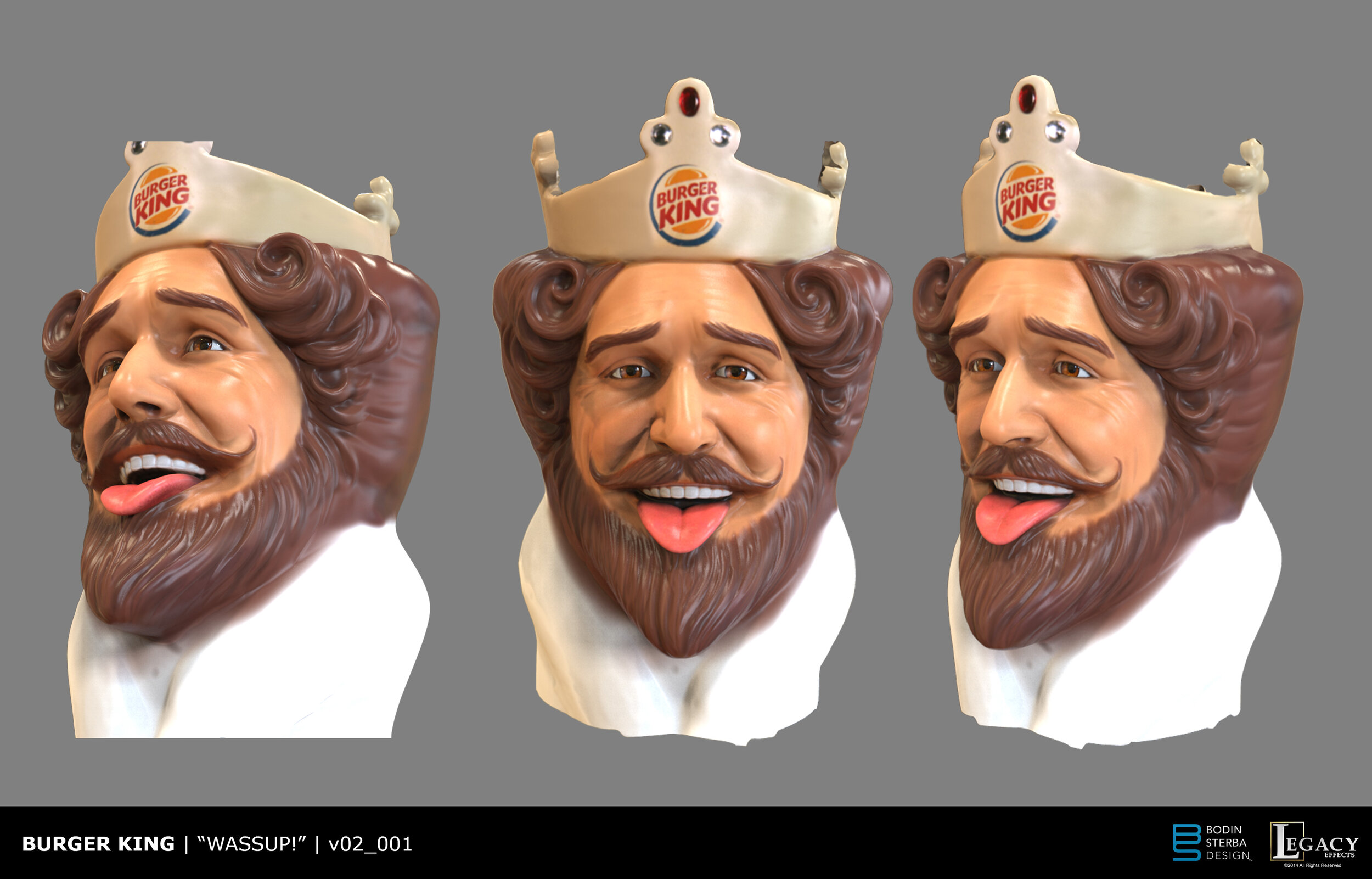Burger King Racist: The Untold Story You Need To Know About
Let's dive straight into the heart of the matter, folks. Burger King racist controversies have been making waves across social media and news outlets. But what exactly is going on here? Is Burger King really engaging in racist practices, or is there more to this story than meets the eye? Let's unpack the details together and get to the bottom of this spicy saga.
Now, when we talk about Burger King, we're not just talking about a fast-food chain that serves up some pretty mean burgers. We're talking about a global brand that's supposed to represent inclusivity and diversity. But recent events have sparked heated debates about whether Burger King is living up to those ideals or if it's stepping into some pretty dangerous territory. Stick around because this conversation is about to get real.
Before we jump into the thick of things, let's set the stage. Burger King has always been known for its bold marketing strategies and edgy campaigns. But sometimes, that edge can cross the line, leading to accusations of insensitivity and even racism. So, the question on everyone's lips is, is Burger King intentionally promoting racist behavior, or are these just isolated incidents blown out of proportion? Let's find out.
- How Many Grandkids Does Kristi Noem Have Discover The Family Life Of South Dakotas Governor
- Is Leighann Rose Married The Truth About Her Relationship Status
Understanding the Burger King Racist Allegations
Alright, let's break down the Burger King racist allegations that have people buzzing. It all started with a series of incidents that sparked outrage across different communities. From controversial ad campaigns to alleged discriminatory practices, Burger King has found itself at the center of a storm. But let's not jump to conclusions just yet. We need to dig deeper and understand the context behind these accusations.
One of the main points of contention has been Burger King's advertising strategies. Some critics argue that certain ads have perpetuated racial stereotypes, while others claim that the brand has failed to adequately represent diverse communities in its marketing efforts. But is this a case of deliberate intent, or are these just missteps in an otherwise well-meaning campaign?
Controversial Ad Campaigns: Where Did They Go Wrong?
Let's zoom in on some of the ad campaigns that have raised eyebrows. Remember the "Whopper Detour" campaign? It was a clever move, no doubt, but it also sparked backlash for allegedly targeting predominantly Black neighborhoods with discounted Whoppers. Some saw this as a form of exploitation, while others defended it as a creative marketing strategy. What do you think? Is this the kind of move that could be considered racist, or is it just a case of poor execution?
- Burger King Guy Jetblue The Inside Story Youve Been Craving
- Charles Manson Jr The Untold Story Behind The Infamous Name
Another campaign that drew criticism was the "Moldy Whopper" ad, which some argued played into negative stereotypes about food quality in minority communities. Critics claimed that showing a Whopper going bad could be interpreted as a jab at the eating habits of certain demographics. But again, was this the intention, or just a poorly thought-out concept?
The Role of Social Media in Amplifying the Debate
Social media has played a huge role in amplifying the Burger King racist debate. Platforms like Twitter and Instagram have become battlegrounds where people voice their opinions, share their experiences, and demand accountability. But with so many voices in the mix, it can be hard to separate fact from fiction. How do we navigate this noisy landscape and find the truth?
One thing's for sure: social media has given a platform to those who feel marginalized by Burger King's actions. Stories of discrimination and exclusion have surfaced, prompting calls for boycotts and change. But it's not all negative. Social media has also allowed Burger King to respond directly to these allegations and engage in meaningful dialogue with its customers. Is this enough, or does the brand need to do more?
Customer Stories: Real People, Real Experiences
Let's hear from the people on the ground. Numerous customers have come forward to share their experiences with Burger King, some positive, others not so much. Take Sarah, for instance, who claims she was treated differently at a Burger King location because of her race. Or John, who says he's never felt unwelcome at any of their outlets. These stories paint a complex picture of what it's like to interact with the brand as a person of color.
But what about the employees? Some workers have also spoken out about their experiences, alleging a lack of diversity in management roles and a culture that doesn't always support inclusivity. These accounts add another layer to the conversation, highlighting the need for systemic change within the organization.
What the Experts Say About Burger King Racist Accusations
Now, let's bring in the experts. Marketing analysts, sociologists, and even former Burger King executives have weighed in on the controversy. Many agree that while Burger King has made strides in promoting diversity, there's still a long way to go. Some suggest that the brand needs to rethink its approach to advertising, while others emphasize the importance of fostering an inclusive workplace culture.
Dr. Maria Lopez, a cultural studies professor, points out that "brands like Burger King have a responsibility to be mindful of the messages they send through their campaigns." She argues that "what might seem like a harmless joke to some can have serious repercussions for marginalized communities." Food for thought, right?
Steps Burger King Can Take to Address the Issue
So, what can Burger King do to address these concerns? Experts recommend a multi-faceted approach that includes revisiting marketing strategies, increasing diversity in leadership roles, and implementing anti-discrimination training for employees. But is Burger King willing to make these changes, or will they continue business as usual?
Some have suggested that the brand could benefit from partnering with organizations that specialize in diversity and inclusion. By collaborating with these groups, Burger King could gain valuable insights and develop more culturally sensitive campaigns. It's a step in the right direction, but only time will tell if it leads to real change.
The Business Impact of Racist Accusations
Let's talk dollars and cents. The Burger King racist controversy has undoubtedly had an impact on the brand's bottom line. Boycotts, negative press, and a tarnished reputation can be costly for any business. But how exactly is this affecting Burger King's financial performance?
Analysts report a dip in sales in certain regions where the controversy has been most intense. Some investors are also expressing concerns about the long-term viability of the brand if it fails to address these issues. But here's the thing: while the financial impact is significant, it's not the only factor at play. The real cost of these accusations is the damage to Burger King's brand image and customer trust.
Rebuilding Trust: A Long Road Ahead
Rebuilding trust is no easy task, especially when it comes to allegations of racism. Burger King will need to go above and beyond to win back the confidence of its customers. This means not just making empty promises but taking concrete actions that demonstrate a commitment to change. But can they pull it off, or is the damage already done?
Some suggest that transparency is key. By openly addressing the issues and involving customers in the solution process, Burger King could begin to mend fences. Others believe that only time and consistent effort will prove whether the brand is serious about creating a more inclusive environment.
Data and Statistics: The Numbers Don't Lie
Let's look at the numbers. According to a recent survey, 65% of respondents believe that Burger King has a problem with racism. Another study found that only 30% of minority employees feel adequately represented in leadership roles within the company. These stats paint a troubling picture of the current state of affairs.
But there's hope. Data also shows that when brands take proactive steps to address racial issues, they can see a 20% increase in customer loyalty. This suggests that if Burger King takes the right actions, they could not only repair their image but also strengthen their connection with their audience.
Global Perspective: How Other Countries View Burger King
It's not just the U.S. where Burger King is facing scrutiny. In countries like the U.K. and Australia, similar concerns have been raised about the brand's approach to diversity and inclusion. But interestingly, in some regions, Burger King is seen as a leader in promoting multiculturalism. What does this tell us about the global perception of the brand?
Experts suggest that cultural differences play a big role in how these issues are perceived. What might be considered offensive in one country could be seen as acceptable in another. This highlights the need for Burger King to adopt a more nuanced approach that takes into account the diverse perspectives of its international customer base.
Final Thoughts: Where Do We Go From Here?
As we wrap up this conversation, it's clear that the Burger King racist controversy is a complex issue with no easy answers. While the brand has faced criticism for its past actions, it also has an opportunity to lead the way in promoting diversity and inclusion in the fast-food industry. The question is, will they seize this moment or let it slip through their fingers?
For those of you who've stuck with me through this journey, I want to leave you with a call to action. If you've been affected by these issues, whether as a customer or an employee, share your story. Your voice matters, and together, we can push for the changes we want to see. And if you're still on the fence about Burger King, take a moment to consider the bigger picture. Is this a brand you want to support, or is it time to explore other options?
Before you go, don't forget to check out our other articles on topics that matter to you. Whether it's food, culture, or social justice, we've got you covered. And if you liked this piece, why not share it with a friend? The more we talk about these issues, the closer we get to creating a world where everyone feels valued and respected.
Table of Contents
- Burger King Racist: The Untold Story You Need to Know About
- Understanding the Burger King Racist Allegations
- Controversial Ad Campaigns: Where Did They Go Wrong?
- The Role of Social Media in Amplifying the Debate
- Customer Stories: Real People, Real Experiences
- What the Experts Say About Burger King Racist Accusations
- Steps Burger King Can Take to Address the Issue
- The Business Impact of Racist Accusations
- Rebuilding Trust: A Long Road Ahead
- Data and Statistics: The Numbers Don't Lie
- Global Perspective: How Other Countries View Burger King
- Final Thoughts: Where Do We Go From Here?



Detail Author:
- Name : Alda Homenick II
- Username : vbogisich
- Email : ted04@gmail.com
- Birthdate : 1979-03-25
- Address : 338 Doyle Grove Suite 347 North Amir, UT 48211-5616
- Phone : 561-818-9695
- Company : Ondricka-Hyatt
- Job : Tree Trimmer
- Bio : Eius voluptates dolor architecto quaerat qui recusandae sit. Nesciunt sint similique velit et. Sint sed ratione harum nulla suscipit hic modi.
Socials
tiktok:
- url : https://tiktok.com/@lexi.kshlerin
- username : lexi.kshlerin
- bio : Ut id et qui quo unde non. Sint ab ea deserunt accusantium mollitia ut libero.
- followers : 2977
- following : 426
linkedin:
- url : https://linkedin.com/in/lexi4927
- username : lexi4927
- bio : Vel voluptas rerum magnam doloribus.
- followers : 4563
- following : 233